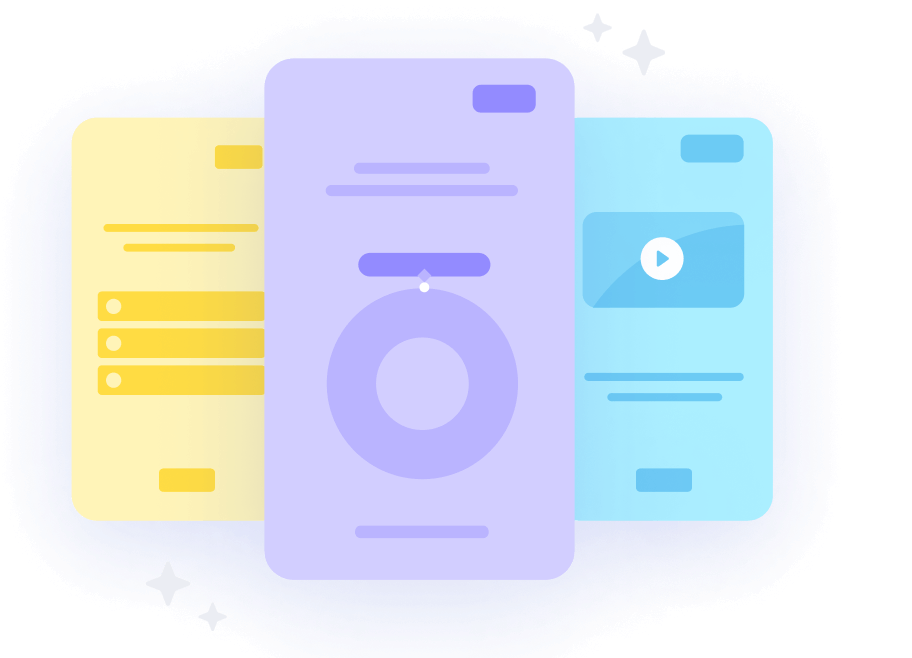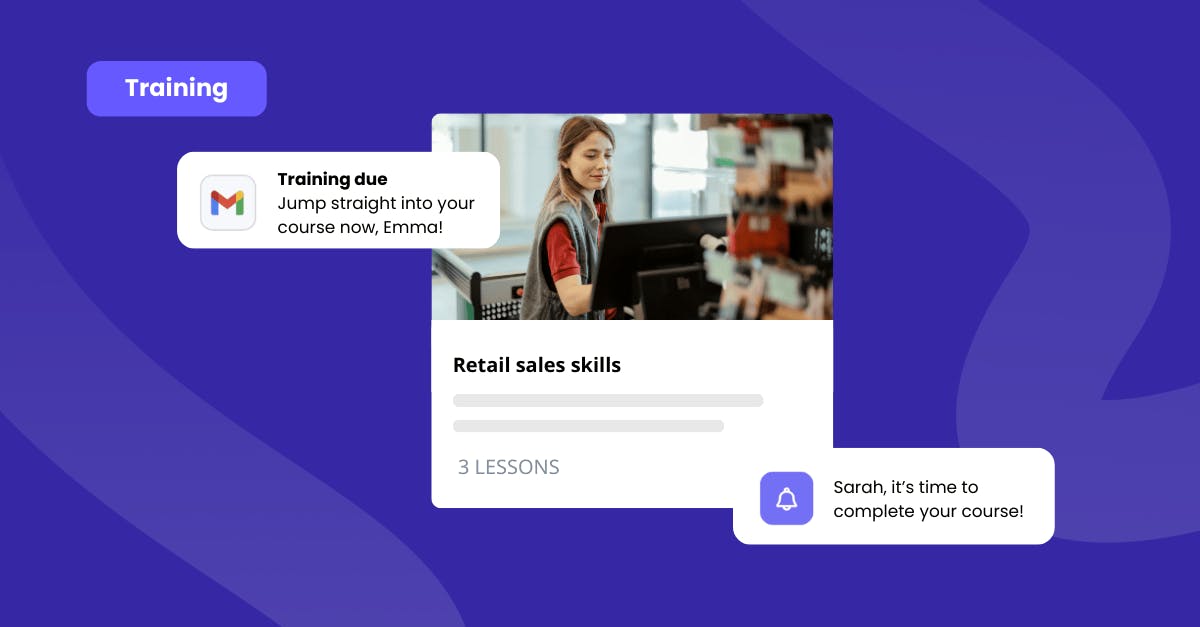10 Retail sales skills to grow your business
In retail, selling requires confidence and skills. At the heart of every great shopping experience are teams that understand what it takes to connect with people. More than just knowing how to ring up a purchase, great sales skills require listening to what the customer needs, offering helpful advice, and making sure they leave happy.
Discover how to connect, communicate, and close a sale in retail’s fast-moving environment. Explore this list of the 10 key retail sales skills for long-term business growth.
What are retail sales skills?
Retail sales skills are techniques used by associates or employees to effectively sell products or services in a retail environment. These skills help create a positive experience for customers while driving revenue for the business. They include everything from strong communication and active listening to product knowledge and persuasive techniques.
Beyond selling, retail job skills also involve building relationships, reading body language, and even managing difficult situations with patience and professionalism. These skills not only help boost sales but also create loyal customers, making them essential to thrive in the fast-paced world of retail.
10 retail sales skills
Boost sales and keep customers coming with the top 10 sales skills for retail success.
1. Upselling
Upselling is a powerful retail sales skill that involves encouraging customers to purchase a higher-end product, add-ons, or upgrades that enhance their original purchase. Rather than being pushy or aggressive, effective upselling is about understanding the customer’s needs and offering value-added solutions that genuinely improve their experience.
What makes upselling such a valuable skill is its potential to increase both customer satisfaction and sales revenue at the same time. It requires strong communication, product knowledge, and the ability to read customer cues.
When done right, upselling feels helpful instead of salesy. It shows the salesperson is paying attention and wants the customer to get the most out of their purchase. More than just selling more, it’s about selling smarter by aligning what the store offers with what the customer truly wants or needs.
Recommended course: Retail Sales Training, Selling Strategies and Interacting with Customers by SC Training
2. Security and risk management
Retail staff are often the first line of defense against theft, fraud, and safety hazards. This means being aware of health and safety in the retail industry and recognizing potential risks like theft, fraud, blocked fire exits, and even improper lifting techniques.
A good sales associate balances customer service with vigilance, making sure the store stays secure while providing a welcoming shopping environment. Sales associates who are trained to manage risks know how to protect store assets, follow proper procedures, and de-escalate tense moments with professionalism.
- Recommended courses: Loss Prevention in Retail, Prevention of Theft from Commercial Premises, Ergonomics for Retail by SC Training
3. Active listening
Active listening is a powerful skill that a retail salesperson should have. This means truly paying attention, asking thoughtful follow-up questions, and responding in a way that shows you understand their needs.
In a busy retail environment, it can be tempting to rush through conversations or assume you know what a customer wants. But taking the time to actively listen often leads to better recommendations and, ultimately, higher satisfaction.
- Recommended courses: Active Listening, Retail Services - Communication by SC Training
4. Objection handling
Turn hesitant shoppers into confident buyers. Objection handling is all about staying calm and positive when a customer raises a concern, be it price, quality, or product fit. Instead of seeing objections as a dead end, skilled salespeople treat them as opportunities to learn more about the customer’s needs and clear up any misunderstandings.
What makes objection handling effective is a balance between empathy and product knowledge. This might involve suggesting an alternative product, offering a demonstration, or simply giving the customer space to decide while staying available for questions.
- Recommended courses: The Leap From No to Yes - Customer Objections, Handling Objections with Emotional Intelligence by SC Training
5. Customer service
Customer service is about creating a positive experience from the moment someone walks in the door to the moment they leave—whether they make a purchase or not. Great customer service involves being friendly, approachable, and genuinely helpful.
It means greeting customers with a smile, answering their questions with patience, and going the extra mile to make sure they feel valued and supported throughout their shopping journey. Strong customer service builds lasting relationships. People remember how they were treated, and in a competitive retail environment, that personal connection can be what sets a store apart.
- Recommended courses: Salesforce for the Sales Force, Understanding Customer Motivations by SC Training
6. Cultural awareness
Cultural awareness means recognizing and respecting the different backgrounds, customs, and communication styles of the customers who walk through the door. Sales associates who are culturally aware know how to make every customer feel welcome, regardless of their language, traditions, or personal preferences.
Being culturally aware also allows salespeople to connect more effectively with a wider range of customers. It shows that the store values its diverse clientele, which can lead to stronger relationships and repeat business.
- Recommended course: Inclusive Selling by SC Training
7. Product knowledge
Product knowledge is a cornerstone of effective retail sales. When a salesperson truly understands the products they’re selling, they’re better equipped to help customers make confident buying decisions.
Instead of just pointing to items on a shelf, a knowledgeable associate can explain features, compare options, and make personalized recommendations based on what the customer is looking for. This not only boosts sales but also builds trust and credibility.
Customers can tell when someone knows their stuff, and they appreciate it. The ability to clearly explain the value of an item can turn a casual browser into a satisfied buyer. Plus, product knowledge allows sales associates to handle questions or concerns smoothly, showing that they’re not just trying to sell, but to genuinely help.
- Recommended course: Client Value Creation by SC Training
8. Adaptability
From sudden changes in store layout to unexpected product shortages or last-minute promotions, retail employees need to think on their feet and adjust quickly. An adaptable salesperson stays calm under pressure, finds creative solutions on the spot, and is always ready to shift gears to meet the needs of both the store and the customer.
What really sets adaptable salespeople apart is their ability to read the room and adjust their approach with different types of customers. Some shoppers want detailed explanations, while others prefer a quick, no-fuss experience. Learning to match your style to theirs makes the interaction feel more personal and effective.
9. Patience
Not every shopper knows exactly what they want, and some may need extra time to ask questions, compare options, or make a decision. A patient salesperson gives customers the space and support they need without rushing or showing frustration. This kind of calm, steady attitude makes customers feel comfortable and respected, which can lead to better sales.
In addition to helping customers, patience is also important when dealing with challenging situations, like long lines, difficult returns, or upset shoppers. Instead of reacting emotionally, a patient sales associate stays professional, listens actively, and works toward a solution.
10. Cash handling and POS systems
Cash handling and point-of-sale (POS) system proficiency are essential skills for retail sales associate that keep the checkout process smooth, accurate, and secure. Sales associates who are confident with these tasks can efficiently process transactions, give correct change, and handle various payment methods without hesitation.
Whether it’s managing cash, credit cards, gift cards, or mobile payments, knowing how to operate a POS system ensures customers have a seamless experience when completing their purchases.
Beyond speed and accuracy, proper cash handling and POS knowledge also play a big role in minimizing errors and preventing loss. A skilled retail worker understands how to balance their register, follow security procedures, and spot issues like counterfeit bills or mismatched receipts. These behind-the-scenes details are critical to maintaining customer trust and store profitability.
- Recommended courses: Payment Security for Cashiers, Point-of-Sale Systems by SC Training
How to develop retail sales skills
Improving your team’s retail sales associate skills takes time and effort. Here are three top priorities to keep in mind as you help your sales crew interact with customers and navigate different sales situations better:
- Practice, practice, practice: The more time they spend interacting with customers, handling products, and navigating different sales situations, the sharper their skills become.
- Encourage them to observe and ask for feedback: Let them watch how top-performing coworkers handle tough customers or upsell without being pushy. Many LMS for retail training offer instant feedback features, helping employees apply what they’ve learned in real-time.
- Train continuously: There’s no reason to skip training your teams on retail sales skills, especially with platforms like SC Training (formerly EdApp) at your fingertips. It offers instant access to a customizable course library packed with retail training content, making it easier than ever to upskill your staff.
Author
Bea Garcia
Bea Garcia is a content specialist at SC Training, a cutting-edge e-learning platform commited to delivering experiences that empower frontline teams. She specializes in creating tailored content for the hospitality, retail, and SaaS industries, offering training solutions that address the unique challenges of each sector. Beyond writing, she spends her time trying out recipes and watching films.

